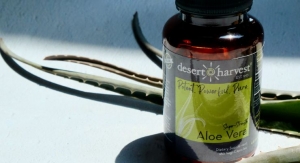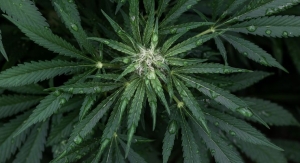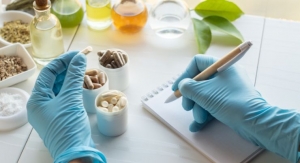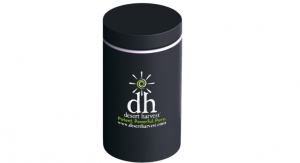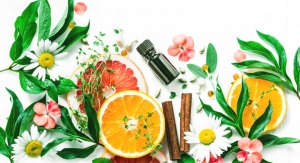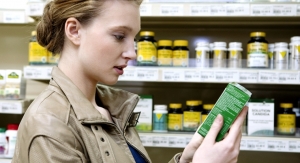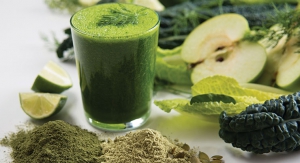Frank Herzberg, Senior Consultant & Joerg Gruenwald05.01.03
There is no doubt that the commercialization of Aloe vera (Aloe barbadensis) is a success story. Products made of or containing aloe gel are found almost everywhere. Consequently, many different kinds of natural-based industries have a share in the aloe market, most notably the cosmetic, food and beverage and dietary supplement industries. Until recently, the topical use of aloe gel in cosmetics and skin care products has been emphasized due to the demonstrated moisturizing and wound-healing effects of aloe gel. However, it is the oral use of Aloe vera in the form of health juices and liquid supplements that has made the market boom in recent years.
Interestingly, in contrast to the demonstrated efficacy in the case of dermal application, there is little solid evidence available on the benefits of aloe taken orally. Rather, the success of Aloe vera in the food and supplement industry is primarily a success of a clever marketing strategy (which the natural cosmetic sector also benefited from).
The International Aloe Science Council (IASC) estimates raw material sales of Aloe vera are currently $70-90 million globally with 35% growth expected within the next five years. The U.S. is by far the largest single supplier with 60-65% of total sales; Latin America constitutes another 20-25% and Asia and the Pacific Rim (Australia, China and India) together make up 10% of the market. The total sales value of processed derivatives and ingredients has been estimated by the IASC to be $1 billion per year in the mid-1990s and has grown continuously since that time. Trade in finished products containing aloe ingredients, are estimated to be over $35 billion globally.
In 1978, Rex Maughan founded Forever Living Products (FLP), Scottsdale, AZ, a company with a marketing concept but without a product. Finally, Mr. Maughan decided that Aloe vera would be a promising product for his business. In the 1980s he acquired patents for stabilizing aloe gel-an essential prerequisite for shipping aloe gel-as well as shares in plantations in the Rio Grande valley. Today, FLP operates two manufacturing units in Texas, one producing 20,000 liters of raw aloe gel per day, mainly for cosmetics and the other producing 65,000 bottles of aloe juice per shift. FLP manages the world's largest Aloe vera farm, with 2020 hectares located in the Dominican Republic, in addition to the 820 hectares in the Rio Grande Valley. To secure the supply of their five million contract traders, FLP recently vertically integrated one of the larger processors, Terry Laboratories. The U.S. aloe industry plantations are moving further and further south. In the past, the largest aloe fields could be found in Florida and South Texas. Two frost periods in the late 1970s and early 1980s, however, completely destroyed the harvests in those years. This drove market leaders to look for places with better weather conditions. These were found in Mexico, Costa Rica, the Dominican Republic and Venezuela, where the largest aloe farms are today.
FLP competes with Aloecorp, Broomfield, CO, another company located in the U.S. but owned by the South Korean network-marketer Namyang Aloe, for the leading position as aloe supplier and marketer. According to CEO Mick Anderson, Aloecorp supplies 40% of the raw aloe sold globally. The company offers the branded polysaccharide ingredient Active-Aloe�, which targets the nutra�ceutical and the health and body care markets. Aloecorp's sister company Unigen is the R&D branch, performing pre-clinical and clinical studies. Another sister company is Oasis, which functions as the marketing branch of the parent company Nam Yang Group in the U.S. Currently, Aloecorp is extending its operations to the Pacific Rim.
China, Australia & Europe
The Chinese government supports the development of a domestic aloe industry and welcomes foreign investment. This year, the Wanlu Biology Company in Yunnan was founded for $1.2 million. By using membrane separation technology, an annual output of 10,000 tons is planned. Foreign aloe companies have been encouraged to invest in China since. The People's Republic recently joined the World Trade Organization (WTO). Interest, particularly by U.S. companies, is reflected in the opening of a Pacific Rim office by the IASC in Hainan. China has an ideal environment for large-scale aloe planting. The Island of Hainan and the southwest province Yunnan are climatically favorable regions for aloe cultivation. As well as aloe pups-young aloe plants-supplied by U.S. farmers, there is a specific Chinese variety of Aloe vera (Aloe barbadensis var. chinensis), which is multiplied by the use of micropropagation techniques. Today, the value of China's aloe industry is approximately $12 million but a ten-fold growth is anticipated within the next five to eight years. The Chinese demand for derivatives alone is estimated to reach $2.4 billion by 2010.This means that China will soon become one of the major aloe suppliers worldwide.
Australia, Europe and other regions only play a minor role in the aloe market compared to the emerging industry in southern China and the U.S., which has plantations in Mexico and the Caribbean. Because of the climate, cultivation of Aloe vera in Europe is confined to South Spain (mainland and the Canary Islands). However in Europe, the consumer trend toward natural products, organically grown and manufactured, has gained enormous popularity. Consequently, aloe derivatives, which have been organically certified, increasingly gain a competitive advantage on the European markets. Small Spanish producers have realized this trend and supply raw material and finished products with organic labels. In addition to stabilized gels, they increasingly offer non-preserved intermediary and finished products, or fresh and frozen leaves and leaf fillets, the latter particularly to food manufacturers.
Another strategy for differentiation being pursued by the global market leaders is the fractionation of aloe extracts, in order to supply branded ingredients with high potency as bioactives for functional foods and cosmetics. As mentioned previously, Aloecorp is offering its Active-Aloe, a middle range molecular weight polysaccharide fraction. Carrington Laboratories, Irving, TX, another big player in the Aloe vera business, favors the high molecular weight range. Carrington pioneered aloe branded ingredients with products such as Acemannan�, Hy�dropol� and Manapol�.
Part of the success of Aloe vera is certainly due to the IASC, an organization founded to protect both the industry and the consumer. The IASC basically represents an association of the major aloe companies and scientists-mostly based in the U.S. The main activity of the organization is promoting and awarding a quality label according to a certification program set by the IASC itself.
This is intended to set barriers for players in this fiercely competitive market and to exclude suppliers of adulterated material. Adulteration is a serious problem in the aloe business, as it is easily carried out through the addition of excess water to gels or maltodextrin to powders. High quality Aloe vera gel, containing 0.5-1.3% solid material, currently sells for $1.25 and $1.95 per kg (wholesale price) as non-concentrated pure juice. Whole leaf extract (0.95-2.0% solid matter) is available for $2.00-4.00. Usually, 10x to 40x concentrated gel is supplied. Powder (200x concentrate) sells for $225-305 per kg for IASC-certified material. You can, however, get powder for $60, but it is likely to contain up to 60% maltodextrin.
In the U.S., Aloe vera gel as juice or an intermediary product is usually only shipped if it has been stabilized with preservatives. For example, liquid diet�ary supplements are permitted to contain up to 2000 mg/l of sorbates and benzoates, either individually or in combination. If the product is marketed as a non-alcoholic beverage, the levels of permitted preservatives are much lower (330 mg/l of sorbates and 150 mg/l of benzoates).
The demand for aloe derivatives is unbroken. Whereas many other leading herbals have faced severe difficulties in the recent past, aloe appears to be virtually unaffected by this negative trend. However, there are sectors where aloe as an ingredient is almost saturated-such as in cosmetics-whereas other sectors have just started booming, such as the dietary supplement sector with both liquid supplements and capsules. Still other product categories are yet in their infancy with respect to aloe but have enormous potential. For example, there are already aloe health juices but very few functional beverages such as new age, sports or wellness drinks containing aloe, though success in this segment is skyrocketing. Likewise, only recently two dairy products targeted at young women have been launched. The products from Nestl� for the Brazilian market and Emmi for the German market pursue the "beauty from within" concept.
Another opportunity to enter the market could be to focus on a new aloe spe�cies. There is at least one other species of currently limited commercial relevance, which is likely to have similar beneficial properties to Aloe vera. Aloe ferox is endemic in South Africa and efforts are already under way to market the gel and other derivatives for a variety of products. Some of the major advantages of Aloe ferox are that it grows naturally, without pesticides and it is abundant in the wild.NW
About the Authors:
Frank Herzberg is senior consultant for Phytopharm Consulting, Berlin, Germany, a unit of analyze & realize ag and Joerg Gruenwald is president. Both authors can be reached at Phytopharm Consulting, 49-30-4000-8100; Fax: 49-30-4000-8500; E-mail: fherzberg@analyze-realize.com, jgruenwald@analyze-realize.com; Website: www.analyze-realize.com.
Interestingly, in contrast to the demonstrated efficacy in the case of dermal application, there is little solid evidence available on the benefits of aloe taken orally. Rather, the success of Aloe vera in the food and supplement industry is primarily a success of a clever marketing strategy (which the natural cosmetic sector also benefited from).
The International Aloe Science Council (IASC) estimates raw material sales of Aloe vera are currently $70-90 million globally with 35% growth expected within the next five years. The U.S. is by far the largest single supplier with 60-65% of total sales; Latin America constitutes another 20-25% and Asia and the Pacific Rim (Australia, China and India) together make up 10% of the market. The total sales value of processed derivatives and ingredients has been estimated by the IASC to be $1 billion per year in the mid-1990s and has grown continuously since that time. Trade in finished products containing aloe ingredients, are estimated to be over $35 billion globally.
Aloe Market Players
In 1978, Rex Maughan founded Forever Living Products (FLP), Scottsdale, AZ, a company with a marketing concept but without a product. Finally, Mr. Maughan decided that Aloe vera would be a promising product for his business. In the 1980s he acquired patents for stabilizing aloe gel-an essential prerequisite for shipping aloe gel-as well as shares in plantations in the Rio Grande valley. Today, FLP operates two manufacturing units in Texas, one producing 20,000 liters of raw aloe gel per day, mainly for cosmetics and the other producing 65,000 bottles of aloe juice per shift. FLP manages the world's largest Aloe vera farm, with 2020 hectares located in the Dominican Republic, in addition to the 820 hectares in the Rio Grande Valley. To secure the supply of their five million contract traders, FLP recently vertically integrated one of the larger processors, Terry Laboratories. The U.S. aloe industry plantations are moving further and further south. In the past, the largest aloe fields could be found in Florida and South Texas. Two frost periods in the late 1970s and early 1980s, however, completely destroyed the harvests in those years. This drove market leaders to look for places with better weather conditions. These were found in Mexico, Costa Rica, the Dominican Republic and Venezuela, where the largest aloe farms are today.
FLP competes with Aloecorp, Broomfield, CO, another company located in the U.S. but owned by the South Korean network-marketer Namyang Aloe, for the leading position as aloe supplier and marketer. According to CEO Mick Anderson, Aloecorp supplies 40% of the raw aloe sold globally. The company offers the branded polysaccharide ingredient Active-Aloe�, which targets the nutra�ceutical and the health and body care markets. Aloecorp's sister company Unigen is the R&D branch, performing pre-clinical and clinical studies. Another sister company is Oasis, which functions as the marketing branch of the parent company Nam Yang Group in the U.S. Currently, Aloecorp is extending its operations to the Pacific Rim.
China, Australia & Europe
The Chinese government supports the development of a domestic aloe industry and welcomes foreign investment. This year, the Wanlu Biology Company in Yunnan was founded for $1.2 million. By using membrane separation technology, an annual output of 10,000 tons is planned. Foreign aloe companies have been encouraged to invest in China since. The People's Republic recently joined the World Trade Organization (WTO). Interest, particularly by U.S. companies, is reflected in the opening of a Pacific Rim office by the IASC in Hainan. China has an ideal environment for large-scale aloe planting. The Island of Hainan and the southwest province Yunnan are climatically favorable regions for aloe cultivation. As well as aloe pups-young aloe plants-supplied by U.S. farmers, there is a specific Chinese variety of Aloe vera (Aloe barbadensis var. chinensis), which is multiplied by the use of micropropagation techniques. Today, the value of China's aloe industry is approximately $12 million but a ten-fold growth is anticipated within the next five to eight years. The Chinese demand for derivatives alone is estimated to reach $2.4 billion by 2010.This means that China will soon become one of the major aloe suppliers worldwide.
Australia, Europe and other regions only play a minor role in the aloe market compared to the emerging industry in southern China and the U.S., which has plantations in Mexico and the Caribbean. Because of the climate, cultivation of Aloe vera in Europe is confined to South Spain (mainland and the Canary Islands). However in Europe, the consumer trend toward natural products, organically grown and manufactured, has gained enormous popularity. Consequently, aloe derivatives, which have been organically certified, increasingly gain a competitive advantage on the European markets. Small Spanish producers have realized this trend and supply raw material and finished products with organic labels. In addition to stabilized gels, they increasingly offer non-preserved intermediary and finished products, or fresh and frozen leaves and leaf fillets, the latter particularly to food manufacturers.
Another strategy for differentiation being pursued by the global market leaders is the fractionation of aloe extracts, in order to supply branded ingredients with high potency as bioactives for functional foods and cosmetics. As mentioned previously, Aloecorp is offering its Active-Aloe, a middle range molecular weight polysaccharide fraction. Carrington Laboratories, Irving, TX, another big player in the Aloe vera business, favors the high molecular weight range. Carrington pioneered aloe branded ingredients with products such as Acemannan�, Hy�dropol� and Manapol�.
Quality, Protection & Price
Part of the success of Aloe vera is certainly due to the IASC, an organization founded to protect both the industry and the consumer. The IASC basically represents an association of the major aloe companies and scientists-mostly based in the U.S. The main activity of the organization is promoting and awarding a quality label according to a certification program set by the IASC itself.
This is intended to set barriers for players in this fiercely competitive market and to exclude suppliers of adulterated material. Adulteration is a serious problem in the aloe business, as it is easily carried out through the addition of excess water to gels or maltodextrin to powders. High quality Aloe vera gel, containing 0.5-1.3% solid material, currently sells for $1.25 and $1.95 per kg (wholesale price) as non-concentrated pure juice. Whole leaf extract (0.95-2.0% solid matter) is available for $2.00-4.00. Usually, 10x to 40x concentrated gel is supplied. Powder (200x concentrate) sells for $225-305 per kg for IASC-certified material. You can, however, get powder for $60, but it is likely to contain up to 60% maltodextrin.
In the U.S., Aloe vera gel as juice or an intermediary product is usually only shipped if it has been stabilized with preservatives. For example, liquid diet�ary supplements are permitted to contain up to 2000 mg/l of sorbates and benzoates, either individually or in combination. If the product is marketed as a non-alcoholic beverage, the levels of permitted preservatives are much lower (330 mg/l of sorbates and 150 mg/l of benzoates).
The Future for Aloe
The demand for aloe derivatives is unbroken. Whereas many other leading herbals have faced severe difficulties in the recent past, aloe appears to be virtually unaffected by this negative trend. However, there are sectors where aloe as an ingredient is almost saturated-such as in cosmetics-whereas other sectors have just started booming, such as the dietary supplement sector with both liquid supplements and capsules. Still other product categories are yet in their infancy with respect to aloe but have enormous potential. For example, there are already aloe health juices but very few functional beverages such as new age, sports or wellness drinks containing aloe, though success in this segment is skyrocketing. Likewise, only recently two dairy products targeted at young women have been launched. The products from Nestl� for the Brazilian market and Emmi for the German market pursue the "beauty from within" concept.
Another opportunity to enter the market could be to focus on a new aloe spe�cies. There is at least one other species of currently limited commercial relevance, which is likely to have similar beneficial properties to Aloe vera. Aloe ferox is endemic in South Africa and efforts are already under way to market the gel and other derivatives for a variety of products. Some of the major advantages of Aloe ferox are that it grows naturally, without pesticides and it is abundant in the wild.NW
About the Authors:
Frank Herzberg is senior consultant for Phytopharm Consulting, Berlin, Germany, a unit of analyze & realize ag and Joerg Gruenwald is president. Both authors can be reached at Phytopharm Consulting, 49-30-4000-8100; Fax: 49-30-4000-8500; E-mail: fherzberg@analyze-realize.com, jgruenwald@analyze-realize.com; Website: www.analyze-realize.com.


